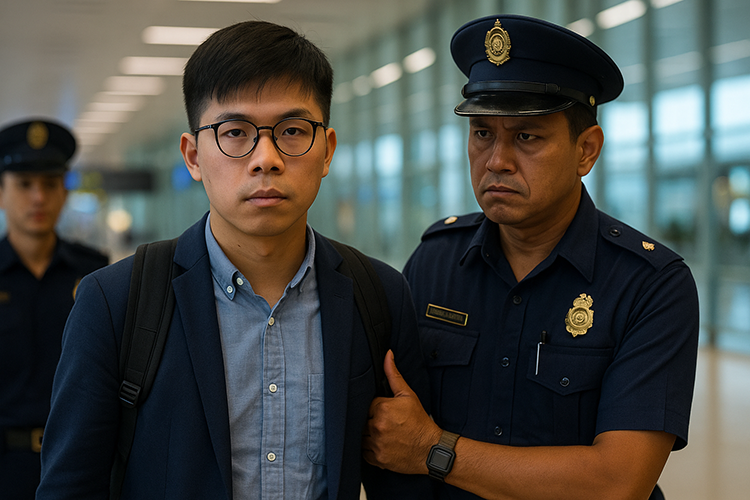Nathan Law Blocked From Entering Singapore as Hong Kong Tightens Grip on Exiled Critics
Democracy campaigner Nathan Law was stopped at Singapore’s border over the weekend and put on a return flight to the United States, the latest setback for one of Hong Kong’s most prominent exiled figures.
Law said he was detained for several hours after landing, questioned by immigration officials and then told he would not be allowed to stay. Authorities in Singapore later explained that, although he held a valid visa, his presence was not considered to serve the country’s national interest. He spent around 14 hours in the city-state before being flown back to the US, where he has been based in recent months.
The activist, who came to prominence during the 2014 Umbrella Movement and was once the youngest lawmaker in Hong Kong’s legislature, has lived abroad since the national security law was imposed on the territory five years ago. Since then, he has been a vocal critic of Beijing, lobbying in Western capitals and urging sanctions against Chinese and Hong Kong officials.
His denied entry coincides with intensified measures against overseas dissidents by Hong Kong authorities. In 2023, police in the city announced rewards for information leading to the capture of Law and seven others, accusing them of offences under the sweeping security law. The bounties were set at one million Hong Kong dollars each. This year the government went further, using new security powers to cancel the passports of 12 activists abroad and to ban local institutions from providing them financial or property support.
Human rights groups say such steps are part of a broader effort to extend political control beyond Hong Kong’s borders. They have criticized Singapore’s handling of Law’s case, warning that governments risk reinforcing Hong Kong’s campaign against dissent. Lawmakers in Britain and the United States, where Law has testified on human rights issues, have also voiced concern.
Singapore has pushed back against claims of outside influence, stressing that it makes its own immigration decisions. The city-state has long kept a firm line against foreign political activity on its soil, and analysts note it has previously barred entry to activists from other countries.
For Law, the episode highlights the narrowing options for travel and advocacy in Asia. With his Hong Kong passport now voided under the new rules and a bounty still in place, his movements are increasingly restricted. For Singapore, the case reflects the challenge of maintaining neutrality in a region where ties with Beijing are central to trade and diplomacy.
The outcome is a reminder that Hong Kong’s security legislation is not only reshaping life inside the territory, but also influencing how other governments respond to its critics abroad.








